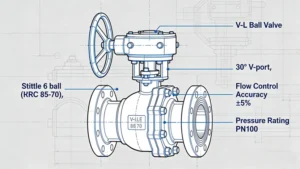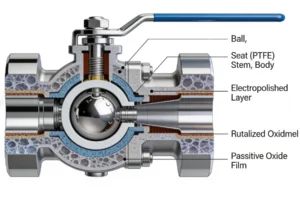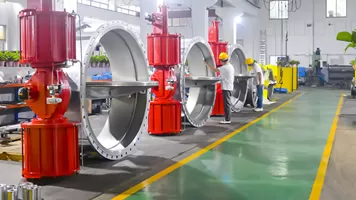Different Methods of Wastewater Treatment Introduction
Wastewater treatment is a critical process for environmental protection and public health, and as an Industrial Valve expert at TIANYU, I recognize the pivotal role that valves play in these systems. With increasing regulatory pressures and technological advancements, selecting the right valves for each treatment stage is not just a matter of efficiency but of compliance and sustainability. Different wastewater treatment methods demand specific valve characteristics to handle varying media, pressures, and corrosive environments. This article explores the intersection of valve technology and wastewater treatment processes, drawing on engineering expertise and field experience to guide professionals in optimizing their fluid control systems.
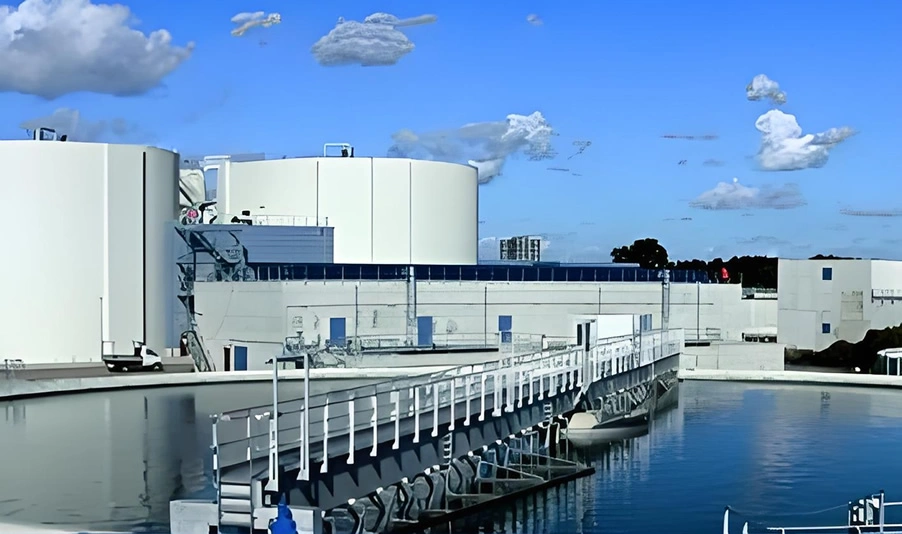
The Role of Valves in Wastewater Treatment Processes
Valves are the workhorses of wastewater treatment plants, controlling the flow of everything from raw sewage to treated effluent and sludge. Their performance directly impacts plant efficiency, energy consumption, and maintenance costs. Unlike standard water systems, wastewater applications present unique challenges including abrasive solids, corrosive chemicals, fibrous materials, and varying pH levels. These demanding conditions require valves with specific materials of construction, robust design features, and specialized actuation systems.
TIANYU’s engineering approach addresses these challenges through customized solutions that consider the full lifecycle cost of valve ownership. While initial purchase price is a factor, it’s often dwarfed by maintenance expenses, energy consumption due to pressure drop, and the cost of unplanned downtime. Our data indicates that properly specified valves can reduce maintenance costs by up to 40% and energy consumption by 15-25% compared to standard offerings.
Valve Applications Across Different Treatment Stages
I. Preliminary Treatment: Guarding Against the Harshest Conditions
The initial treatment stage faces the most challenging conditions as raw wastewater enters the plant carrying debris, grit, and abrasive solids. Here, valves must handle large solids without clogging while resisting the abrasive wear from sand and grit.
-
Screening and Grit Removal: Knife gate valves are particularly effective in these applications due to their ability to cut through fibrous materials and seal tightly even with solid particles present. TIANYU’s knife gate valves feature a hardened stainless steel bottom edge that enables them to shear through debris that would jam conventional valves. In bar screen channels, we recommend custom-designed shut-off gates with stainless steel guides and epoxy-coated cast iron construction for corrosion resistance.
-
Flow Distribution: At this stage, manual or actuated gates valves are typically employed for flow diversion. TIANYU’s heavy-duty gates valves feature reinforced bodies and industrial-grade epoxy coating that provides 2.5 times the corrosion resistance of standard coatings, significantly extending service life in these demanding environments.
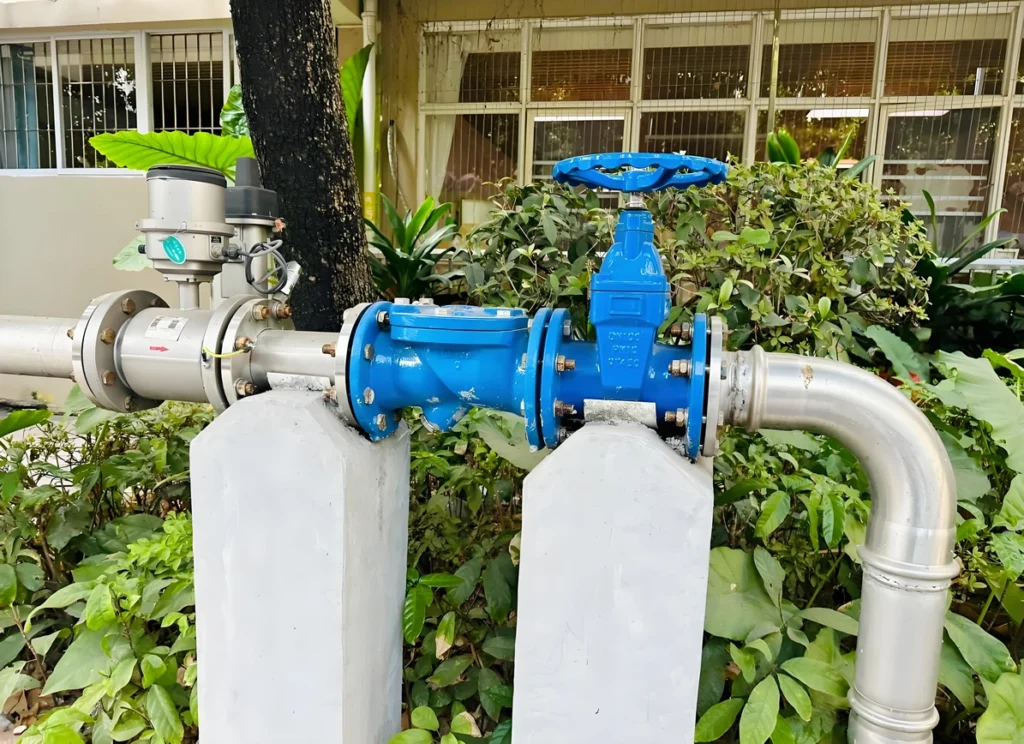
II. Primary Treatment: Handling Settled Solids and Corrosive Gases
After preliminary treatment, wastewater moves to primary clarification where solids settle out and skimmers remove floating materials. The environment becomes increasingly corrosive due to hydrogen sulfide release from anaerobic conditions.
-
Sludge and Scum Handling: For handling settled primary sludge, TIANYU recommends our specially designed pinch valves or full-port Ball Valves. These valves offer unobstructed flow paths that prevent buildup of the thick, viscous sludge that characterizes this stage. Our anti-clogging design incorporates a self-cleaning mechanism that activates with each operation, reducing maintenance interventions by up to 70% compared to conventional designs.
-
Corrosion Management: The presence of hydrogen sulfide gas demands special material considerations. TIANYU offers valves with specialized linings including high-density polyethylene (HDPE) and EPDM that resist sulfide attack far better than standard materials. For severe service conditions, our dual laminate construction provides an additional barrier against corrosion while maintaining structural integrity.
III. Secondary Treatment: Biological Processes and Precision Control
Secondary treatment employs biological processes to break down organic matter, requiring precise control of air and water flows to maintain optimal conditions for microorganisms. Valves in these applications must provide accurate modulation while resisting biological fouling.
-
Aeration Systems: Fine bubble diffusers require precise air flow control to maintain oxygen transfer efficiency. TIANYU’s precision-regulating valves with characterized discs provide linear flow characteristics that enable exact oxygen delivery, typically achieving 15-20% energy savings compared to conventional approaches. The valves feature a special anti-fouling design that prevents biofilm accumulation that can disrupt process control.
-
Return Activated Sludge (RAS): Controlling RAS flow rates is critical to process stability. TIANYU’s modulating control valves with position feedback provide the accurate flow control needed for this application. Our patented low-flow characterization technology ensures accurate control even at the lowest flow rates, preventing hydraulic shocks that can disrupt the settling process in secondary clarifiers.
IV. Tertiary Treatment: Advanced Filtration and Disinfection
Tertiary treatment polishes effluent to meet strict discharge standards through filtration, nutrient removal, and disinfection. Valves in this stage must handle chemicals precisely while offering dead-tight shutoff.
-
Filtration Systems: Backwash valves for deep bed filters require rapid operation with minimal pressure drop. TIANYU’s ultra-large Butterfly Valves with custom disc designs provide the necessary flow characteristics while our robust sealing systems prevent leakage during service cycles. Our proprietary coating technology reduces wear on sealing surfaces, extending service intervals by up to 3 times compared to standard valves.
-
Disinfection Systems: Chemical disinfection systems demand valves that can handle aggressive oxidants like chlorine, ozone, and peracetic acid. TIANYU’s lined valves with PTFE or PFA barriers provide exceptional resistance to these harsh chemicals. For UV-based disinfection systems, we offer valves with highly polished interiors that maintain hydraulic efficiency while preventing fouling that could shadow pathogens from UV exposure.
V. Sludge Treatment: Handling High-Solids and Abrasive Materials
Sludge processing presents some of the most challenging conditions in wastewater treatment, with high viscosity, abrasive solids, and often elevated temperatures from thermal processes.
-
Thickening and Dewatering: Positive displacement pumps feeding dewatering equipment require pressure relief valves that can handle high solids content without clogging. TIANYU’s diaphragm-type relief valves with large passageways and elastomeric diaphragms provide reliable protection against overpressure. For belt press and centrifuge feed lines, our full-port knife gates ensure uninterrupted flow of thickened sludge.
-
Digestion and Thermal Processing: Anaerobic digesters operate at elevated temperatures with production of corrosive biogas. TIANYU offers specialized valves for digester gas handling with materials compatible with hydrogen sulfide content. For thermal hydrolysis systems operating at high pressures and temperatures, our forged steel Gate Valves provide the necessary safety margin with fire-safe design and emergency sealing capability.
Specialized Valve Technologies for Wastewater Applications
Material Advancements
The corrosive nature of wastewater demands careful material selection. TIANYU’s approach combines traditional materials with advanced coatings and composites:
-
Corrosion-Resistant Alloys: We offer valves in super duplex stainless steels (2507), nickel alloys (Alloy 20), and titanium for severely corrosive applications, particularly in saline environments or where industrial discharges increase corrosivity.
-
Advanced Composites: For many applications, composite materials offer superior corrosion resistance at lower weight. TIANYU’s glass-reinforced polymer valves with PVDF linings provide excellent chemical resistance while reducing weight by up to 60% compared to metallic alternatives, simplifying installation and support requirements.
-
Specialized Elastomers: Our research has developed compound-specific elastomers for different wastewater applications. For general sewage handling, we recommend EPDM for its balance of chemical and abrasion resistance. For grease-heavy applications, we developed a specialized nitrile compound that resists swelling while maintaining sealing force.
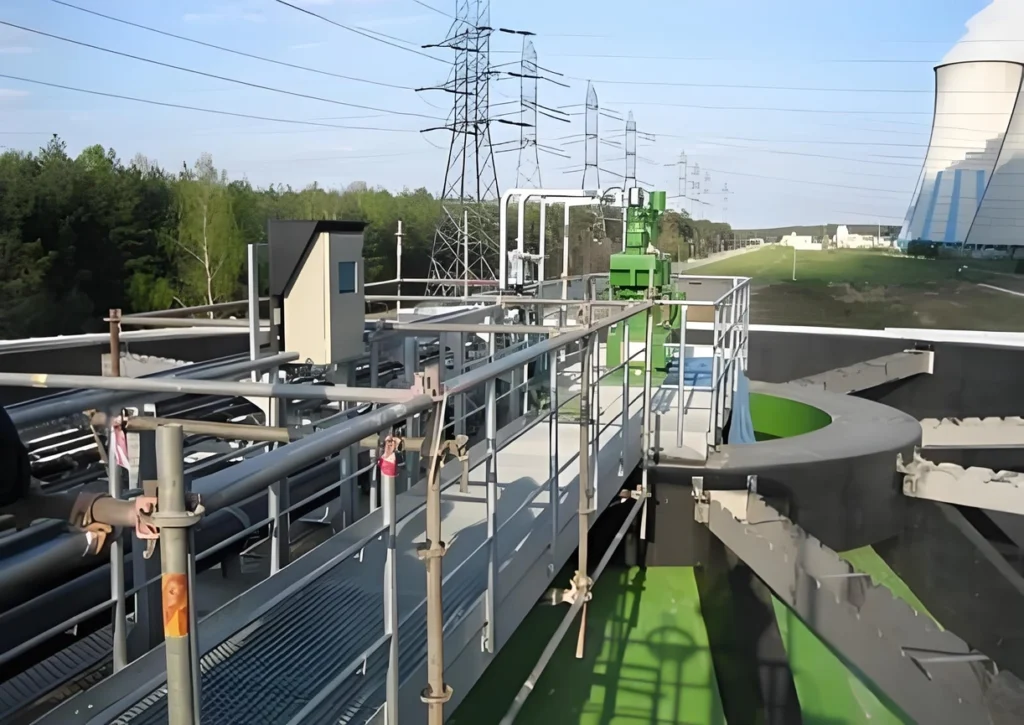
Actuation and Control Systems
Modern wastewater treatment demands increasingly sophisticated valve control:
-
Smart Actuators: TIANYU’s intelligent actuators incorporate torque sensing, position feedback, and diagnostic capabilities that predict maintenance needs before failures occur. Our data shows that plants utilizing our predictive maintenance capabilities reduce valve-related downtime by up to 80%.
-
Integrated Control Systems: For complex processes like anaerobic digestion, we provide packaged valve skids with pre-programmed control sequences that integrate with plant SCADA systems. These skids reduce engineering and commissioning time while ensuring optimal process performance.
Innovative Designs for Challenging Applications
-
Non-Clogging Technologies: TIANYU’s vortex-flow control valves handle difficult solids-laden flows without clogging. The unique design creates a vortex action that keeps solids in suspension while providing accurate flow control, even with rags and debris present.
-
Low-Noise Emissions: For applications where noise is a concern, such as plants in urban areas, TIANYU offers specially engineered silent Check Valves that prevent water hammer with minimal noise generation. Our multi-stage pressure reduction technology eliminates cavitation that damages valves and generates excessive noise.
Case Studies: TIANYU Valves in Action
Municipal Plant Upgrade Achieves 40% Maintenance Reduction
A major municipal plant in coastal China faced chronic valve failures due to saltwater intrusion and aggressive industrial discharges. After comprehensive fluid analysis, TIANYU recommended replacing standard valves with a combination of super duplex stainless steel valves for critical applications and composite valves with specialized linings for less demanding services. The result was a 40% reduction in maintenance hours and a 65% reduction in spare parts inventory, with projected savings of approximately $180,000 annually.
Industrial Pretreatment System Handles Extreme pH Swings
A pharmaceutical wastewater pretreatment system experiencing pH values ranging from 2 to 12 required valves that could handle these extreme swings. TIANYU provided valves with PFA linings and specialized diaphragm sealing systems that withstood the challenging conditions where previous valves failed within months. The solution has operated without failure for over three years, enabling the plant to meet discharge permits consistently.
Nutrient Removal System Achieves Precision Control
A biological nutrient removal system struggling with control instability installed TIANYU’s characterized control valves with smart positioners. The valves provided exact flow control for carbon source addition and internal recycling flows, improving process stability and reducing nutrient violations by 90%. The precision control also reduced chemical consumption by approximately 15%, providing both compliance and economic benefits.
Selection Guidelines for Wastewater Treatment Valves
Selecting the right valve for wastewater applications requires careful consideration of multiple factors:
-
Media Characteristics: Analyze pH, solids content, abrasiveness, temperature, and chemical composition. For solids content above 5%, consider full-port designs with abrasion-resistant materials.
-
Process Requirements: Determine if the application requires tight shutoff, modulation capability, or rapid operation. For pump protection, fast-closing check valves may be necessary to prevent reverse flow.
-
Environmental Conditions: Consider ambient temperature, exposure to weather, and seismic requirements. For outdoor installations, UV-resistant materials and weatherproof actuation may be necessary.
-
Lifecycle Cost Analysis: Evaluate not just purchase price but installation costs, maintenance requirements, energy consumption, and expected service life. Our data shows that properly specified valves typically have a 30-40% lower total cost of ownership despite higher initial investment.
Maintenance Best Practices
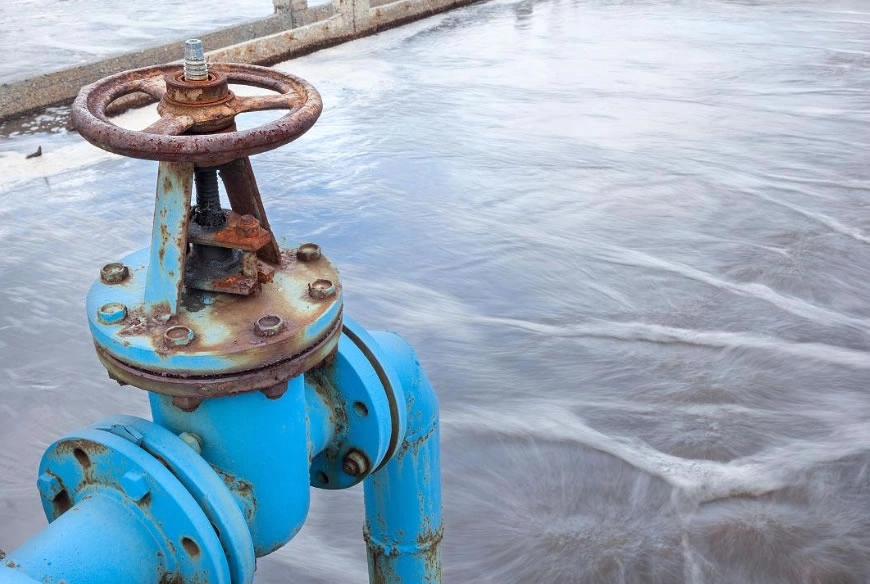
Proper maintenance is essential for maximizing valve life in wastewater applications:
-
Preventive Maintenance Programs: Implement regular inspection and maintenance schedules based on valve criticality and service conditions. TIANYU’s digital twin technology allows virtual simulation of maintenance procedures before physical work begins.
-
Condition Monitoring: Utilize advanced monitoring techniques including acoustic emission testing for leak detection, ultrasonic thickness measurement for corrosion monitoring, and performance trending to identify degradation before failure occurs.
-
Training Programs: Ensure maintenance staff receive comprehensive training on specific valve types. TIANYU’s augmented reality training modules allow technicians to practice procedures virtually before working on actual equipment.
Future Trends in Wastewater Valve Technology
The wastewater treatment industry continues to evolve, and valve technology must keep pace:
-
Digitalization and IIoT: Integration of sensors and connectivity will enable predictive maintenance and performance optimization. TIANYU’s smart valve platform provides real-time performance data and predictive analytics that can reduce unplanned downtime by up to 70%.
-
Advanced Materials: Nanocomposites and surface engineering techniques will provide even greater corrosion and wear resistance. TIANYU’s graphene-enhanced coating technology shows promise in early trials, demonstrating a 3x improvement in abrasion resistance.
-
Energy Recovery: As treatment plants move toward energy neutrality, valves will play a role in energy recovery systems. TIANYU is developing specialized valves for anaerobic digestion gas handling and thermal energy recovery applications.
-
Standardization and Modularization: Pre-assembled valve skids with standardized interfaces will reduce installation and commissioning time while improving reliability.
Valve selection and application in wastewater treatment requires specialized knowledge of both treatment processes and valve technology. The demanding conditions throughout treatment processes necessitate robust, corrosion-resistant designs tailored to specific services. As treatment standards become more stringent and economic pressures intensify, the proper application of advanced valve solutions becomes increasingly important.
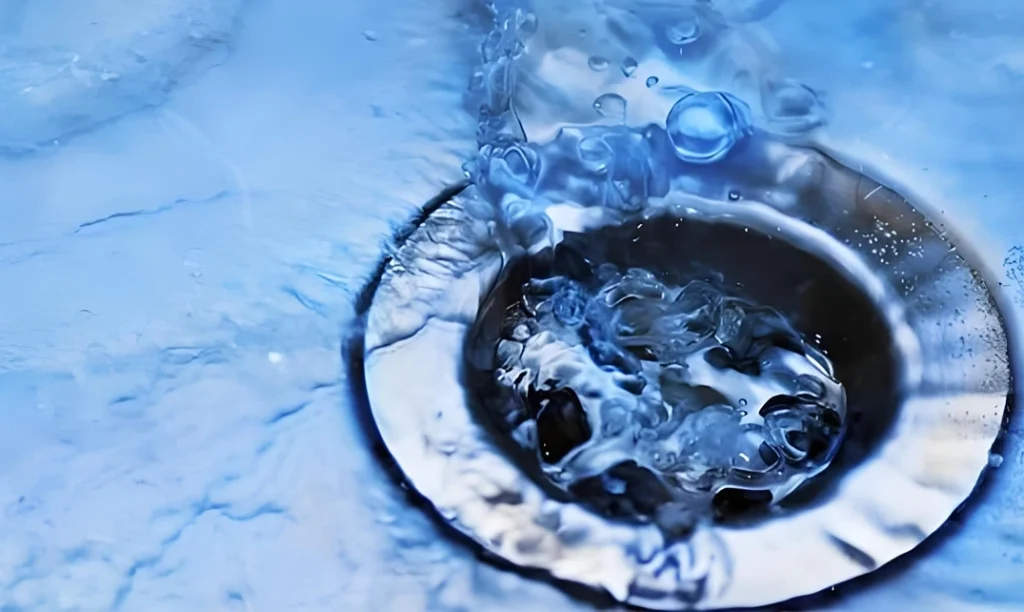
TIANYU’s experience across thousands of wastewater applications worldwide demonstrates that a systematic approach to valve selection, focusing on total lifecycle cost rather than just initial price, delivers significant operational and economic benefits. By matching valve designs and materials to specific service conditions, treatment plants can achieve greater reliability, reduced maintenance costs, and improved process performance.
The future of wastewater treatment will demand even more from valve technology, with digitalization, advanced materials, and energy efficiency becoming increasingly important. TIANYU remains committed to developing the innovative valve solutions that will enable treatment plants to meet these evolving challenges while protecting our water resources for future generations.


